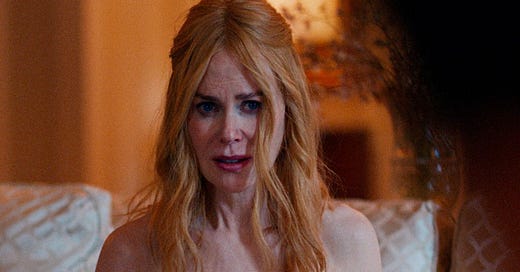The desire for a ‘normal’ sex life
In Babygirl, the age-gap affair faces off with the impossible sexuality of motherhood and marriage
I’m supposed to be on my semiannual newsletter hiatus, but what can I say, I just can’t stay away. And last week, in the middle of an otherwise slightly claustrophobic but mostly lovely holiday break, I saw Babygirl with friends and I just can’t not say anything about it!! I’m still technically trying to recoup from what I can now see clearly was a pret…



